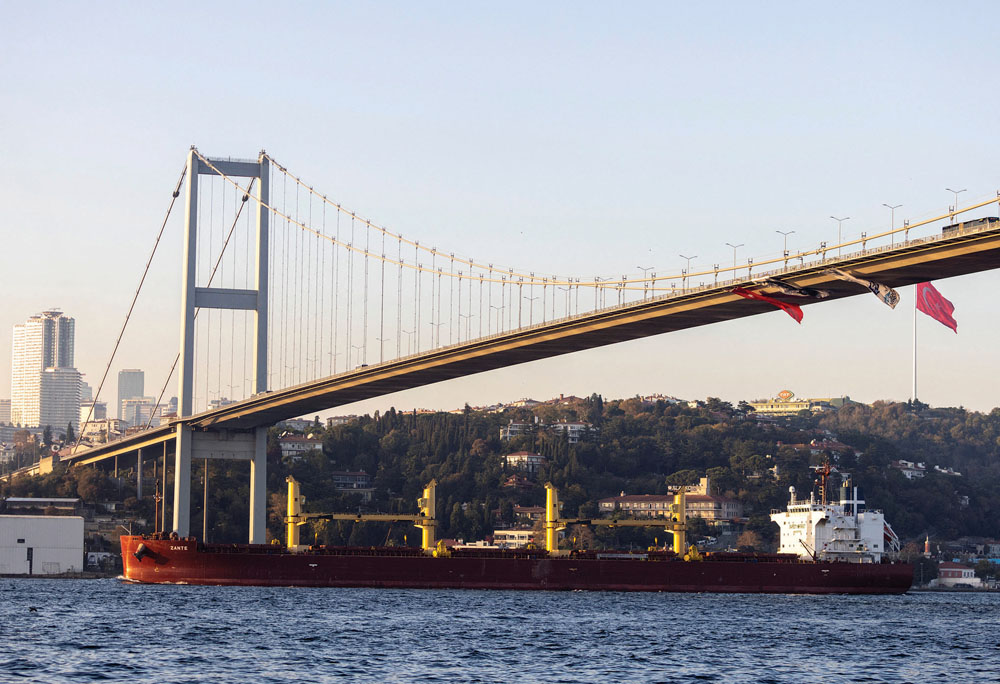Wheat prices went for a wild ride during the week of Oct. 31 to Nov. 4 due to Russian machinations over the Black Sea export agreement.
During the weekend of Oct. 29 and 30, the Russian Black Sea fleet was apparently attacked at its base at Sevastopol. Russia quickly levelled accusations that Ukraine perpetrated the strikes using aerial and surface drones.
[RELATED] U.N.’s Black Sea grain deal continues without Russia
Read Also

Canola market sees up and down week
Canola futures endured a topsy-turvy week ended July 17, 2025, with most ICE contracts seeing net gains of about C$15 per tonne.
Added to that, Russia accused the United Kingdom of assisting the attacks and pointed a finger at Canada for supplying the navigation systems on the drones.
When the new week of trading began, wheat prices soared. On Oct. 31, Minneapolis wheat saw its December contract jump 36.25 cents US, with Chicago surging 53 cents and Kansas City by 53.75 cents. The spillover brought up other grains as well as vegetable oils, including canola. The latter’s January contract advanced C$14.90 per tonne.
To date, Russia has yet to offer concrete evidence as to who launched the said attacks, but President Vladimir Putin demanded a third-party investigation in what he deemed to be a terrorist attack.
Given the extent of devastation that Russia has wrought throughout Ukraine since February, Putin’s rhetoric is as farcical as the destruction to Ukraine has been ruthless.
When the war began eight months ago, there were about 25 million tonnes of grain in Ukraine for export. The country’s main avenue to the world has been its ports along the Black Sea. With the Russian invasion, these were either been occupied or blockaded.
Some grain was sent out by train to be loaded on vessels diverted westward to other European ports. But Ukraine’s rail system is said to be lacking in such abilities, more so with the need to transport incoming military supplies. Meanwhile, much needed grain, especially for less developed countries, was unable to move.
Through the intervention of Turkey and the United Nations, a seemingly impossible agreement was put together months ago that allowed Ukraine to export its grain through those war-torn ports. Safe corridors were cleared with the Turkish Navy escorting commercial vessels. Although Ukraine’s grain exports remained well below their normal pace, the global shortfall was being met, at least in part.
That quickly came to an end with the recent Russian allegations. Putin declared Russia was pulling out of the agreement, which has surprisingly lasted so long. He claimed that Ukraine launched drone strikes from within one of the safe corridors.
Things turned around by Nov. 2. Turkey and the UN intervened again, as talks led to Russia rejoining the export agreement, with the proviso that Ukraine refrain from using the safe corridors for future military strikes.
As the dust settled, down went wheat prices. Minneapolis December fell 40.25 cents US, Kansas dropped 49.75 cents and Chicago tumbled 56.50 cents.
Meanwhile, canola fended off that pressure and tacked on C$10.60/tonne to its January contract thanks to support from comparable oils. However, the next day things cooled off for canola, as it closed mixed with a $2.10/tonne increase in the January contract.
A cautious eye must be kept on Russia because Putin said his country could again pull out of the agreement if he sees fit to do so.




















